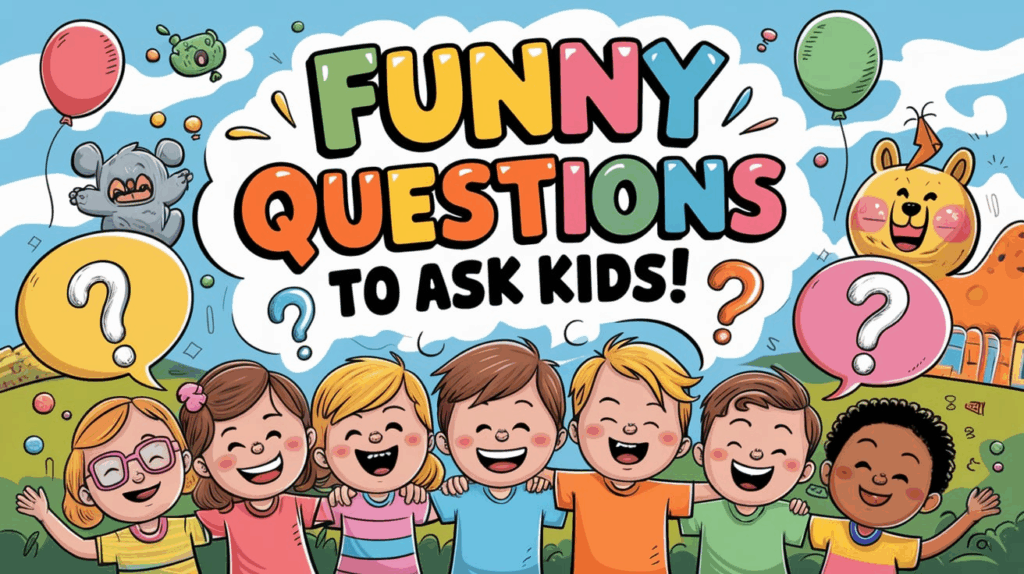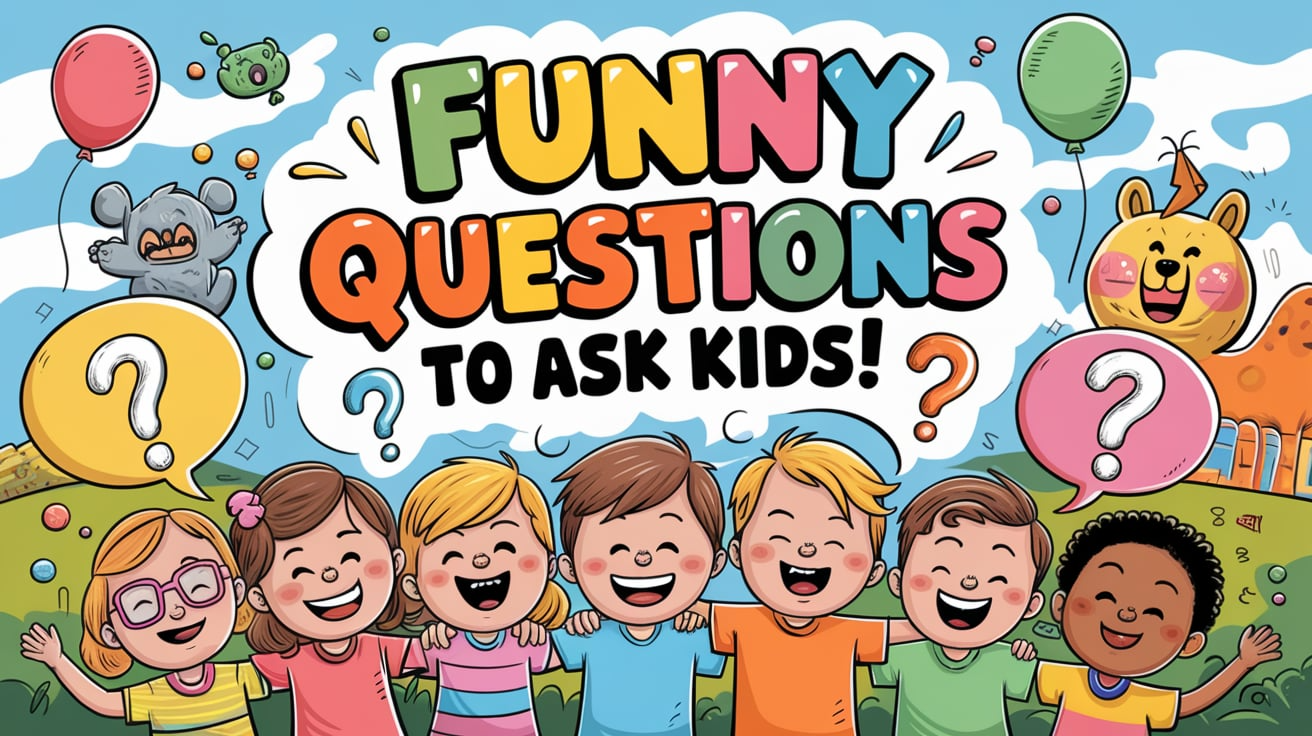
Engaging Questions to Ask Kindergarteners: Sparking Curiosity and Learning
Kindergarten is a pivotal year in a child’s development, a time when they’re rapidly expanding their knowledge, social skills, and understanding of the world around them. As educators and parents, one of the most effective tools we have to foster this growth is through thoughtful and engaging questions. Asking the right questions to ask kindergarteners can not only assess their understanding but also stimulate their curiosity and encourage critical thinking. This article explores a variety of questions to ask kindergarteners, categorized by subject and purpose, to help you create meaningful interactions and learning experiences.
Why Asking Questions Matters
Before diving into specific examples of questions to ask kindergarteners, it’s crucial to understand why this approach is so valuable. Questioning promotes active learning, encouraging children to think for themselves rather than passively receiving information. It helps them articulate their thoughts, develop their vocabulary, and build confidence in their ability to express themselves. Furthermore, strategic questioning allows educators and parents to gauge a child’s comprehension and identify areas where they may need additional support. Thoughtful questions to ask kindergarteners are a powerful tool for assessment and engagement.
Categories of Questions to Ask Kindergarteners
To maximize the impact of questioning, it’s helpful to categorize questions to ask kindergarteners based on their intended purpose. Here are several categories with specific examples:
Basic Knowledge and Recall
These questions assess a child’s understanding of fundamental concepts and their ability to recall information. They are often used in the context of reading, math, and science lessons. Some examples include:
- What is the name of this animal? (Show a picture)
- How many apples are there? (Show a group of apples)
- What letter does this word start with?
- What color is this?
- Can you name the days of the week?
These questions to ask kindergarteners are designed to be straightforward and assess foundational knowledge.
Critical Thinking and Problem-Solving
These questions encourage children to think critically, analyze situations, and come up with solutions. They move beyond simple recall and require children to apply their knowledge. Examples include:
- What would happen if it didn’t rain?
- How can we share these toys fairly?
- What do you think will happen next in the story?
- Why do you think the character did that?
- How could we build a tower that is stronger?
These questions to ask kindergarteners promote higher-order thinking skills and encourage them to think outside the box.
Creative Expression and Imagination
These questions tap into a child’s creativity and imagination, allowing them to express themselves freely and explore different possibilities. Examples include:
- If you could have any superpower, what would it be and why?
- If you could travel anywhere in the world, where would you go?
- What is your favorite thing to draw and why?
- If you could invent a new toy, what would it be?
- What kind of animal would you be and why?
These questions to ask kindergarteners foster imagination and self-expression.
Social and Emotional Development
These questions help children develop their social and emotional intelligence, encouraging them to reflect on their feelings and interactions with others. Examples include:
- How are you feeling today?
- What makes you happy?
- How can we be a good friend to someone who is sad?
- What is something you are proud of?
- How can we solve this problem peacefully?
These questions to ask kindergarteners are crucial for building empathy and social skills.
Questions Related to Stories and Books
Reading aloud and discussing stories is a cornerstone of kindergarten education. Here are some questions to ask kindergarteners during and after reading a book:
- What is the main idea of the story?
- Who are the characters in the story?
- Where does the story take place?
- What was your favorite part of the story?
- How did the story make you feel?
- If you could change the ending of the story, how would you change it?
- What do you think will happen after the book ends?
These questions encourage comprehension and engagement with the text.
Math Related Questions
Introducing math concepts in kindergarten can be fun and interactive with the right questions. Some examples of questions to ask kindergarteners about math include:
- Can you count these blocks?
- Which group has more?
- What shape is this?
- If I have two apples and you have one, how many do we have together?
- Can you show me a pattern?
These questions help build a foundation for math skills.
Science Related Questions
Sparking curiosity about the natural world is essential. Here are some science-related questions to ask kindergarteners:
- What happens when we mix these two colors?
- Why do plants need sunlight?
- What animals live in the forest?
- How does the weather change?
- What are the different parts of a plant?
These questions introduce basic science concepts in an accessible way.
Tips for Asking Effective Questions
Asking effective questions to ask kindergarteners requires more than just having a list of questions. Here are some tips to keep in mind:
- Be patient: Give children time to think and formulate their answers.
- Listen actively: Pay attention to what children say, even if their answers are not perfectly correct.
- Encourage participation: Create a safe and supportive environment where children feel comfortable sharing their thoughts.
- Use open-ended questions: These questions encourage more detailed and thoughtful responses than simple yes/no questions.
- Follow up: Ask clarifying questions to help children elaborate on their answers.
- Make it fun: Turn questioning into a game or activity to keep children engaged.
- Adapt to the child’s level: Adjust the complexity of the questions based on the child’s individual abilities and understanding.
- Be enthusiastic: Your enthusiasm will encourage children to participate and engage with the questions.
Examples of Questioning in Different Scenarios
Let’s consider some practical examples of how to use questions to ask kindergarteners in different situations:
During Circle Time
Circle time is a great opportunity to ask questions that promote social and emotional development. For example, you could ask: “How can we show kindness to our friends today?” or “What are some things we are grateful for?” You can also use circle time to review basic knowledge, such as asking: “What day is it today?” or “What season are we in?”
During Story Time
As mentioned earlier, story time is an excellent opportunity to ask questions that promote comprehension and critical thinking. After reading a page, you could ask: “What do you think will happen next?” or “Why do you think the character is feeling sad?” These questions to ask kindergarteners enhance their understanding and engagement with the story.
During Playtime
Playtime provides opportunities to ask questions that encourage creativity and problem-solving. For example, if children are building with blocks, you could ask: “How can we make our tower taller?” or “What shapes are we using?” These questions to ask kindergarteners help them apply their knowledge and develop their skills in a playful setting.
During Meal Time
Meal time can be a chance to ask questions about nutrition and healthy eating habits. You could ask: “What foods are good for our bodies?” or “Where does this food come from?” These questions to ask kindergarteners promote awareness of healthy choices.
The Importance of Positive Reinforcement
When asking questions to ask kindergarteners, it’s crucial to provide positive reinforcement. Acknowledge and praise their efforts, even if their answers are not perfectly correct. This will encourage them to continue participating and building their confidence. Use phrases like “That’s a great try!” or “I appreciate you sharing your thoughts!” to create a positive and supportive learning environment.
Adapting Questions for Different Learning Styles
Kindergarteners have diverse learning styles. Some are visual learners, others are auditory, and some are kinesthetic. When asking questions to ask kindergarteners, try to incorporate different modalities to cater to these learning styles. For example, use visual aids like pictures or objects to accompany your questions. Incorporate songs or rhymes to help them remember information. Allow them to move around and act out their answers if they are kinesthetic learners. Adapting your approach will make the learning experience more engaging and effective for all children.
Common Mistakes to Avoid
While asking questions is a valuable tool, it’s essential to avoid common mistakes that can hinder learning. Here are some pitfalls to watch out for:
- Asking leading questions: These questions suggest the answer and don’t require children to think for themselves.
- Asking too many questions at once: This can overwhelm children and make it difficult for them to focus.
- Interrupting children: Allow them to finish their thoughts before jumping in with another question.
- Criticizing their answers: This can discourage them from participating in the future.
- Not providing enough wait time: Give children ample time to process the question and formulate their response.
Conclusion
Asking thoughtful and engaging questions to ask kindergarteners is a powerful way to foster their learning, curiosity, and development. By categorizing questions based on their purpose, using effective questioning techniques, and adapting to different learning styles, educators and parents can create meaningful interactions that promote active learning and build essential skills. Remember to provide positive reinforcement and avoid common mistakes to create a supportive and encouraging environment. With the right approach, questioning can be a transformative tool in the kindergarten classroom and at home, setting children on a path to lifelong learning and success. The art of asking the right questions to ask kindergarteners is an investment in their future, sparking curiosity and laying the groundwork for a lifelong love of learning.
[See also: Early Childhood Education Strategies] [See also: Fostering Creativity in Young Children]

